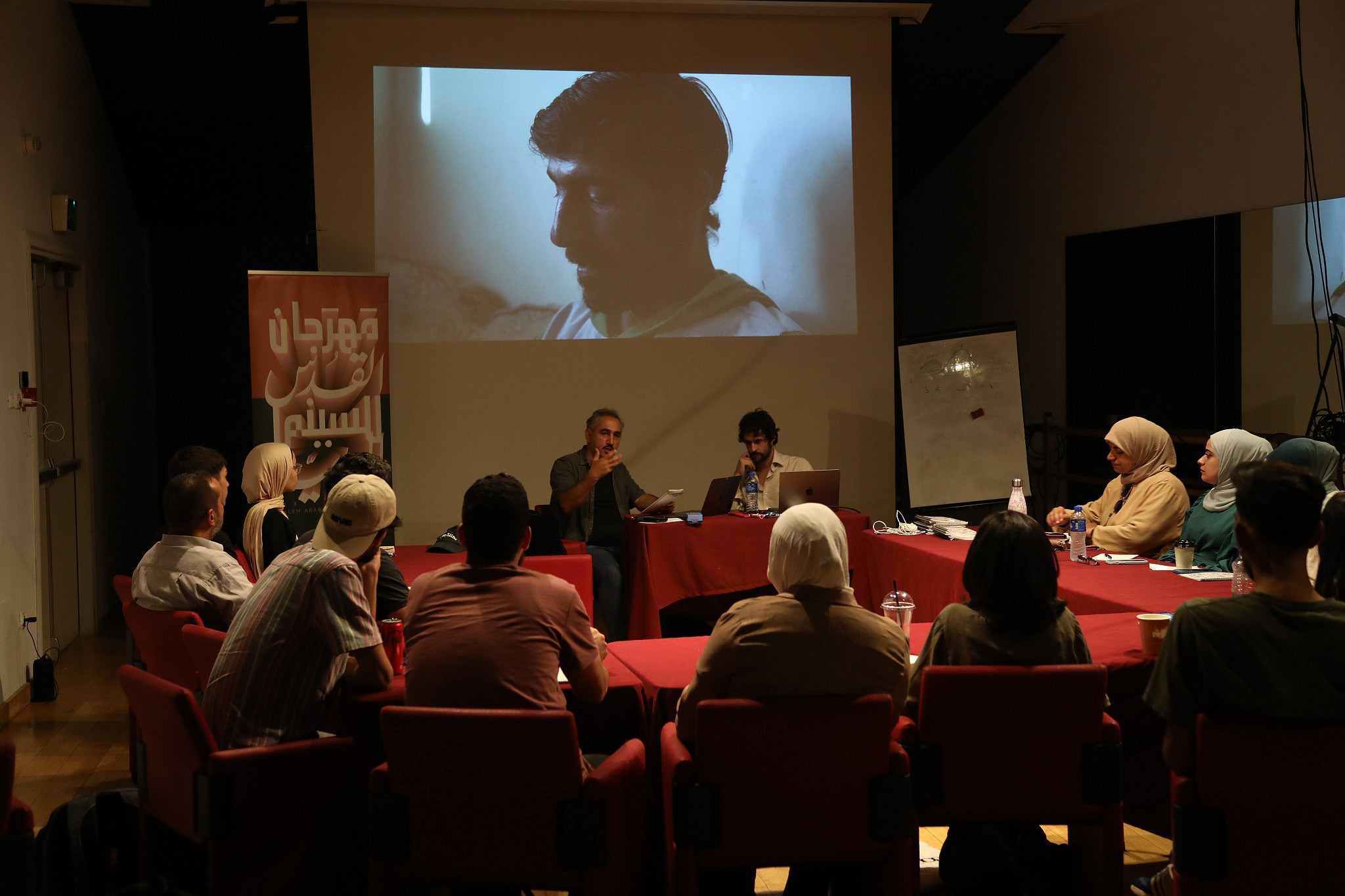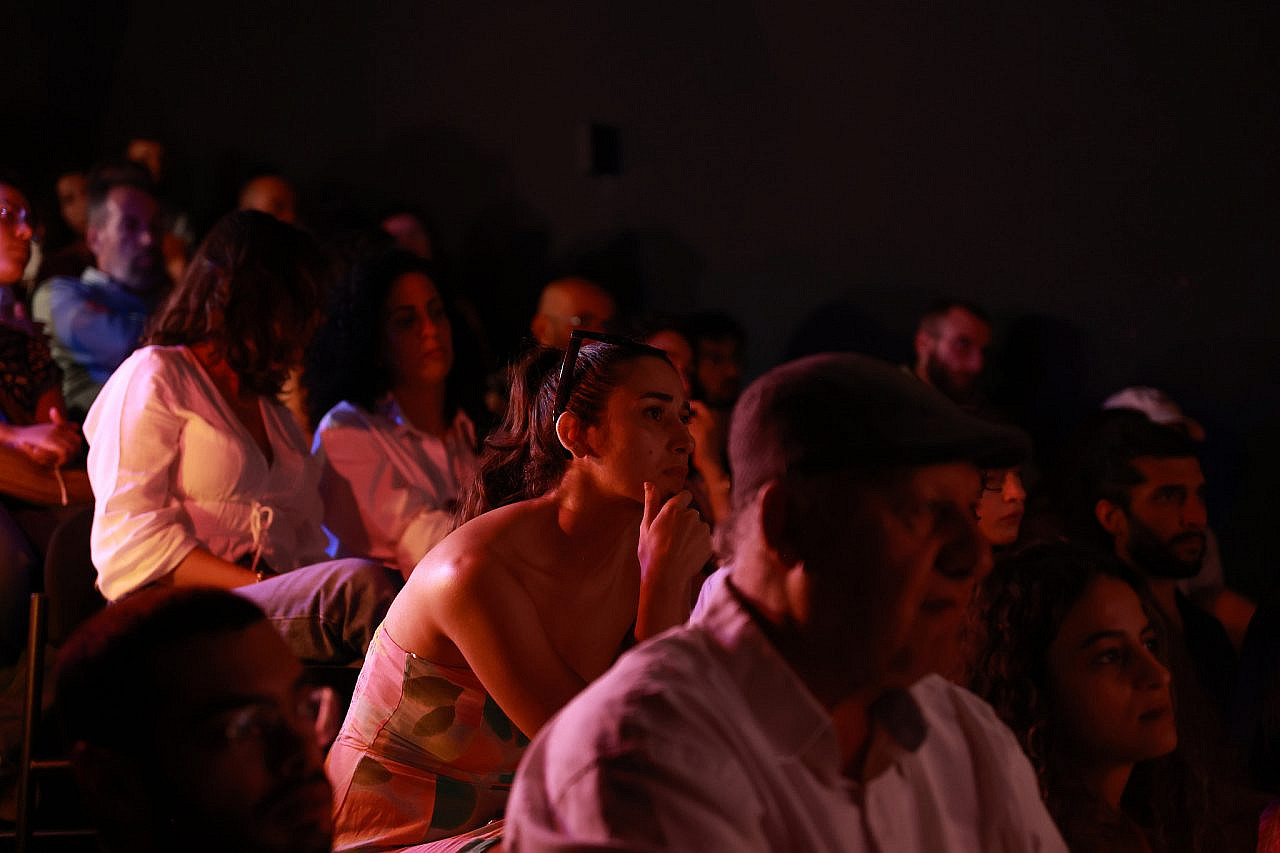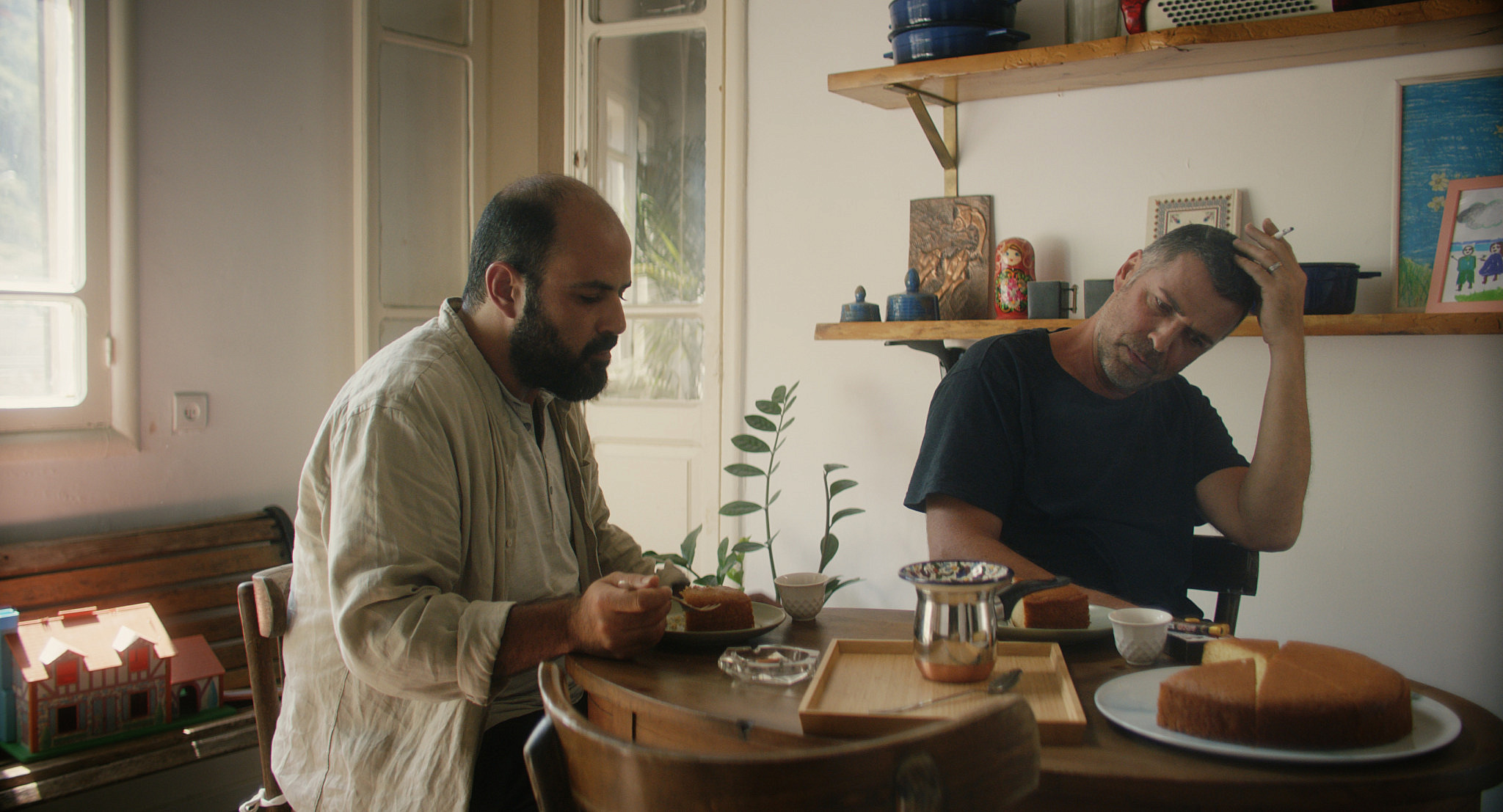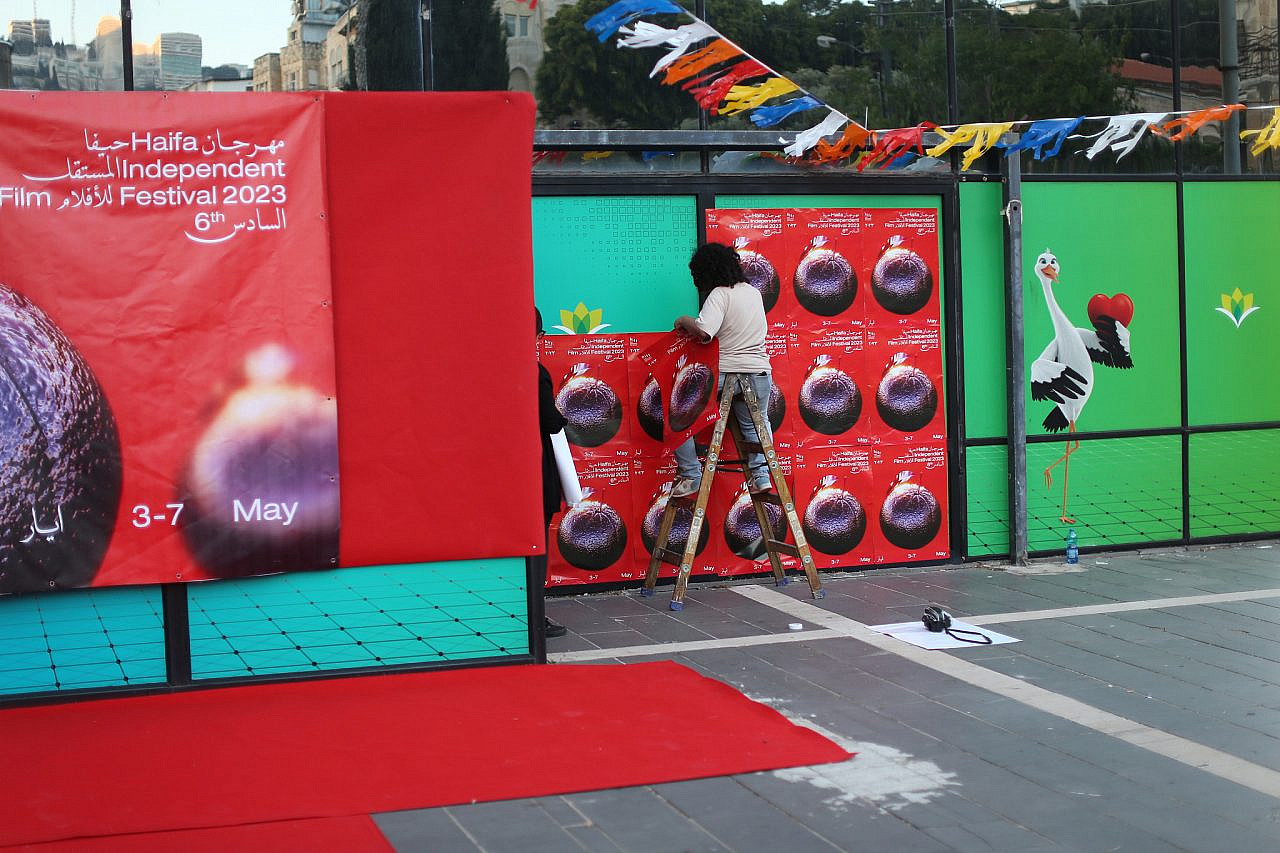This summer, I had the opportunity to attend two festivals dedicated to screening local and international films for Palestinian audiences: the Haifa Independent Film Festival (HIFF) and the Jerusalem Arab Film Festival (JAFF). Watching several new Palestinian films, I was struck by how exceptionally the filmmakers used cinematography and storytelling to capture the essence of the Palestinian experience and the horror of the Israeli occupation.
Films such as these offer a unique perspective on Israel’s complex and multilayered apartheid and colonization, highlighting the human rights abuses, injustices, racism, and displacement resulting from the state’s policies. They serve as a form of documentation, capturing stories and testimonies that might otherwise be overlooked and ignored. And they use art as a medium for raising awareness and shining a light on the Palestinian struggle.
“A Gaza Weekend,” for example, which screened at the opening night of HIFF, is a dark comedy that tells the story of a British journalist and his Israeli girlfriend who attempt to escape Israel through Gaza, after the UN closes Israel’s borders in response to a virus outbreak from a lab. The couple gets to experience what life is like in Gaza for the two million Palestinians who have spent over a decade and a half under Israeli blockade. A young man and his friend try to help the couple in exchange for money, but things don’t go as smoothly as planned.
The audience’s enthusiasm for the film was contagious: we laughed and teared up together, and delivered a standing ovation at the end that lasted several minutes.
At JAFF, meanwhile, as attendees gathered around a refreshment table ahead of opening night at the courtyard of El-Hakawati, a Palestinian theater in the Sheikh Jarrah neighborhood of occupied East Jerusalem, I couldn’t help but think of the immense struggle of Palestinian families in the area against settlers’ attempts to take over their homes. I also thought of the many times when Israeli soldiers or Border Police officers, heavily armed and angry, had raided the theater’s auditorium and stopped the show, kicking the audience and cast out of the building.
Looking on at the crowd of Palestinian intellectuals and cinema lovers socializing and catching up with one another, a filmmaker friend, with tears in his eyes, told me: “It warms my heart to see the revival of this scene after feeling like Palestinian art is dead in Jerusalem.” And indeed, it was heartwarming to see Palestinians enjoying themselves in a city that grows more hostile toward them every day.
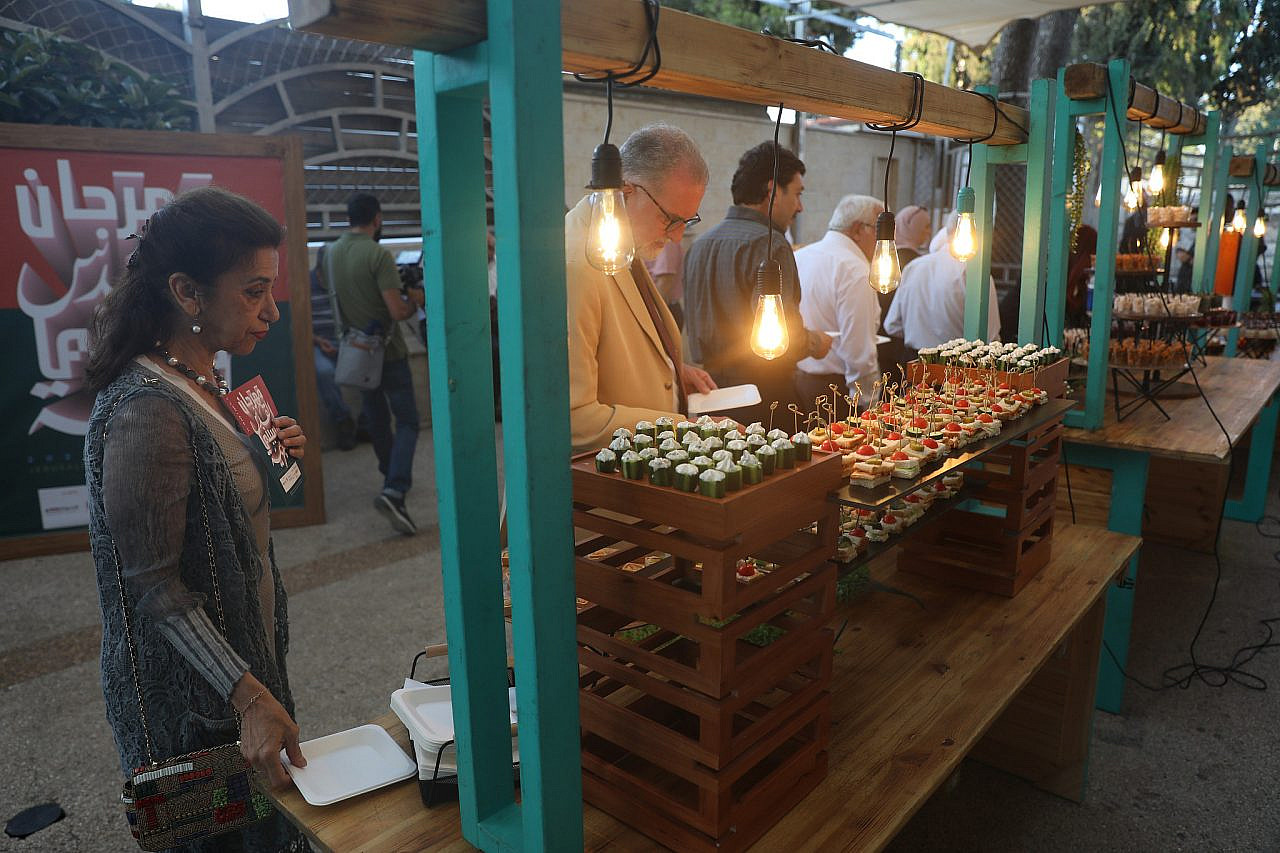
Maria Zreik, a Palestinian actor who starred in “A Gaza Weekend,” said that the festival was “proof that we can create an independent artistic space for ourselves, [and] a validation of our importance as Palestinian artists in developing our independent careers while living in Israel.” Moreover, Zreik added, the HIFF — now in its sixth year — “proved that cinema is a bridge between us and the Arab world, of which we, as Palestinians, are an inseparable part. I see that in itself as an accomplishment.”
Zreik continued: “Despite our reality, I think the success of Palestinian cinema locally and internationally is that it tells the stories of a people with a cause — not just political but also social and emotional, people who are holding on to their identity wherever they are.”
She noted that Palestinian filmmaking faces ongoing funding challenges, given the difficulty of securing foreign donors and the scarce Palestinian resources available, which limits the number of local, independently-produced Palestinian movies. Nonetheless, Zreik said, “the current period of Palestinian cinema is constantly developing and makes an important mark on international festivals.”
A new phase
The turnout at the Haifa event made clear that there was a pressing need for a Palestinian film festival, according to Aida Kaadan, the head of the film selection committee at HIFF. “Almost all of the films were sold out even though we were showcasing films that dated [back] to 2021 and 2022,” she said. “[That] highlights the need for cinema-going, and for the experience of being collectively in one place watching the same film at the same time.”
In addition to people’s clear desire to experience collective culture again in the wake of the COVID-19 pandemic, Kaadan also reflected that Palestinian cinema itself has entered a new phase, in which filmmakers are experimenting with genre and form. It’s an evolution that comes after many such shifting trends over nearly a century of Palestinian filmmaking.
“Palestinian cinema has been around for almost 90 years, with different phases during each period,” Kaadan explained. “The first was the pre-Nakba phase, which was more documentaries, and then the ‘silence’ phase that followed the Nakba, when Palestinians were in a state of trauma and did not produce much.”
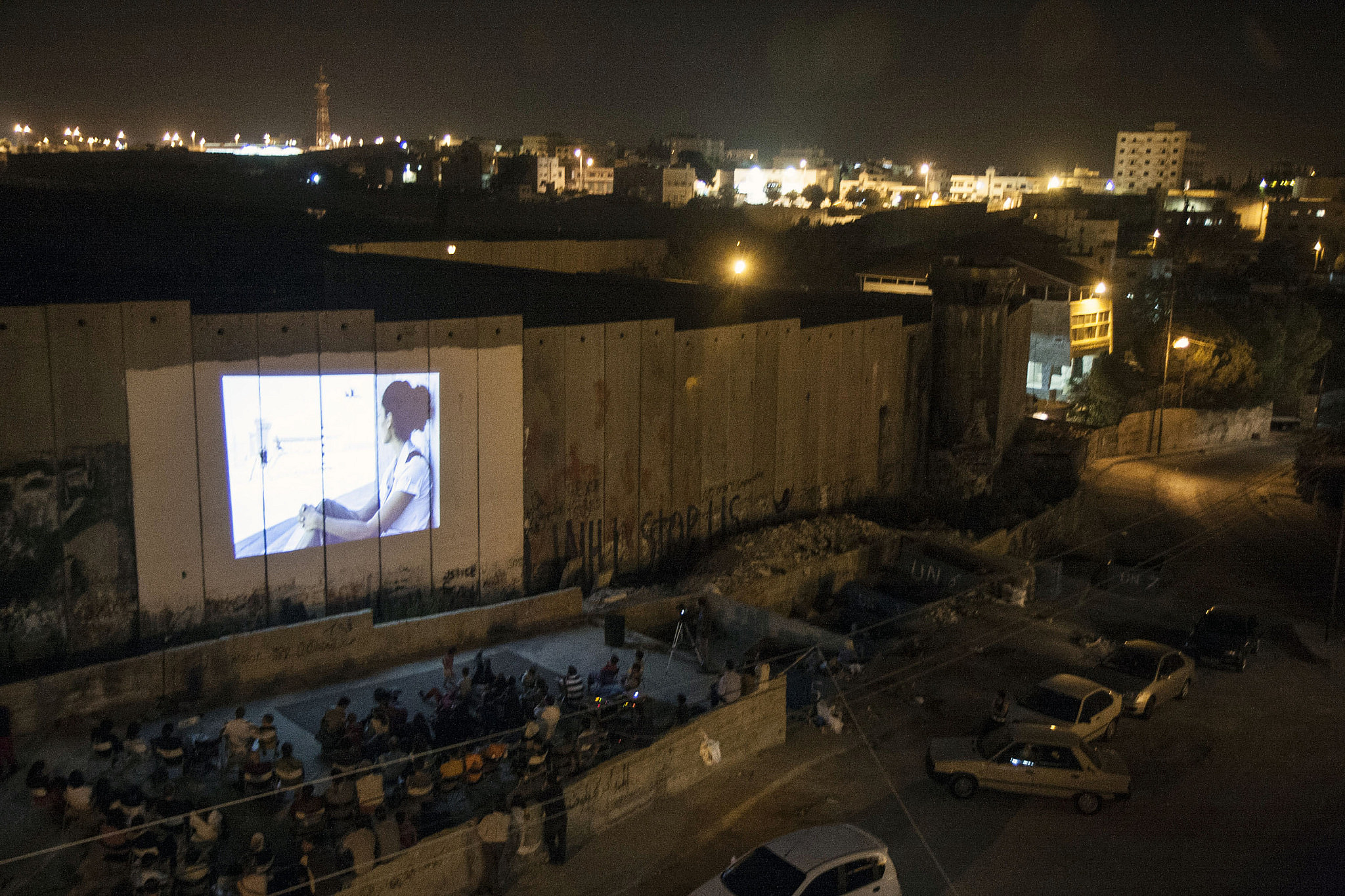
The Naksa (“setback”) phase began following the start of Israel’s occupation of the West Bank and Gaza in 1967; during this period, the PLO began “using films for their benefit and to push forward their political agenda, focus[ing] on Palestinians in refugee camps in the diaspora and in the West Bank.”
The fourth phase followed in the 1980s, when film director Rashid Masharawi incorporated Palestinian citizens of Israel into the national cinema for the first time, Kaadan said. “When he did this, the world met this kind of ‘creature’ for the first time. And with that, the cinema completely changed and became more political and [about] individual stories, and thus more sophisticated.”
Today, Palestinian cinema is in “a postmodern phase, where for the first time we are experimenting with different genres,” Kaadan noted, citing the dark humor of “A Gaza Weekend” as an example. “A lot of the new films are exiting the safe zone of only speaking about a political agenda and focusing on the individual and the artistic aspects.”
‘The audiences surprise you’
Film festivals play a pivotal role not only in nurturing the growth of the Palestinian film industry, but also in making meaningful investments in Palestinian cities and neighborhoods. Niveen Shaheen, the founder of JAFF, said that as a Jerusalem-born Palestinian she wanted to do something for her beloved city. She started researching the option of creating an Arab film festival in the city and attended events in Berlin, Cairo, Amman, and elsewhere, establishing connections with directors, producers, and festival founders.
“We all know what Jerusalem is going through to eliminate its Palestinian identity,” Shaheen said. “My main reason [for creating the festival] is to have a responsibility toward my city. The need for various cultural events and cinema is crucial.”
According to Shaheen, the relationship between Palestinian cinema and its audience was cut off after the outbreak of the First Intifada; thereafter, the disruption continued to exacerbate Palestinians’ isolation.
“Palestinian audiences surprise you with their reaction, and you can never guess [how they’ll respond to a film],” Shaheen said. “What is interesting is that the audience interacts a lot with the Palestinian films — that is why I think it is important to screen those films locally and not just at international festivals.”
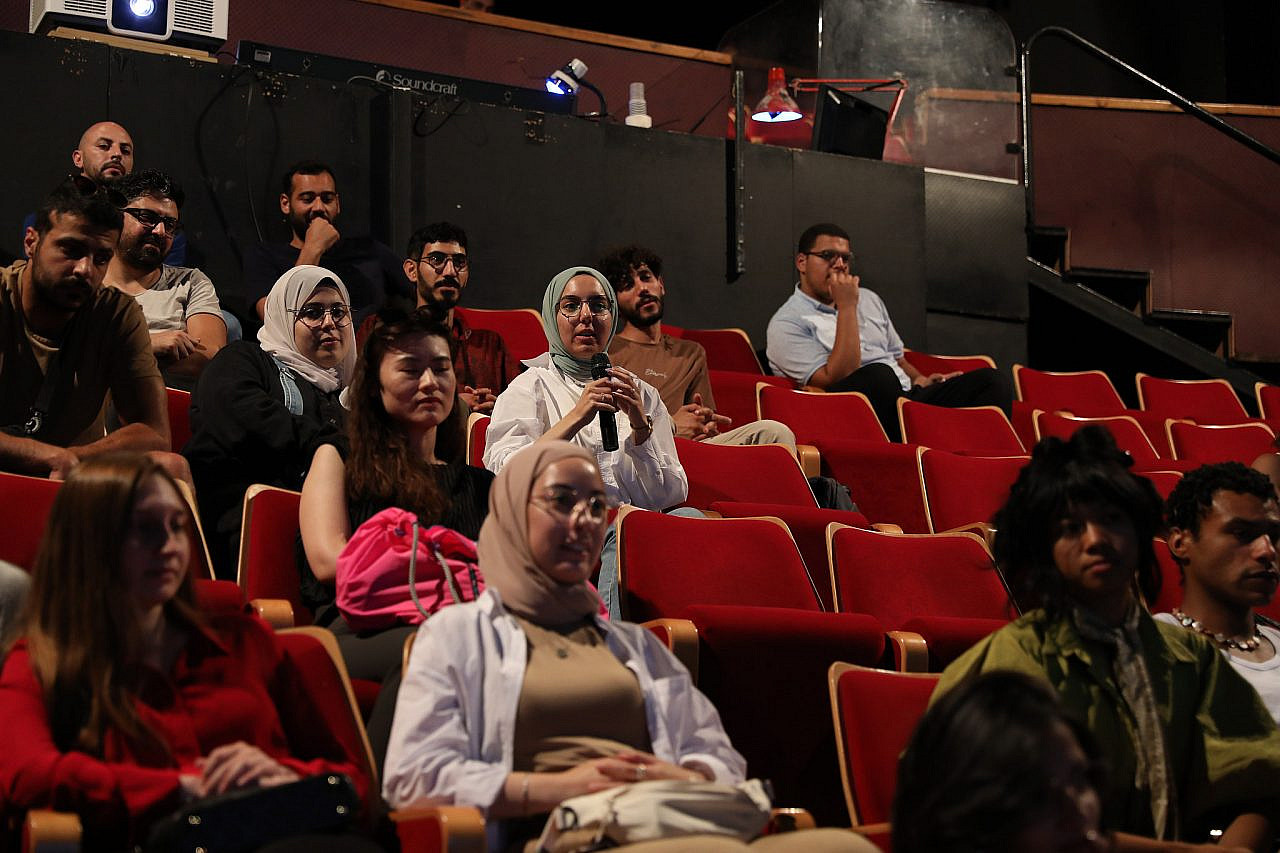
Shaheen said that JAFF decided to show all the films for free after taking into consideration the rising cost of living in the city, with an option for people to support the festival financially by buying passes at different prices.
“We are creating an audience base that is interested in cinema,” she explained. “We attract an audience that is interested in cultural events. All the initiatives in Haifa, Jerusalem, Ramallah and everywhere are important, and the more initiatives we have, the better. We need to work for change and permanence in order to create new things.”
Interest in the festival extended beyond Jerusalem, with people outside of the city — including from the rest of the Arab world — enthusiastic to join the various filmmaking workshops JAFF offered, with some joining via Zoom.
An industry in waiting
Despite the progress that has been achieved, Palestinian cinema still faces the need for further development as an industry. In fact, Palestinian writer and director Maha Haj — whose latest film, “Mediterranean Fever,” premiered at the 2022 Cannes Film Festival and won the prize for best screenplay — says that Palestinians don’t have a film industry but rather individuals who make films.
“We don’t have a full [filmmaking] crew: we have many directors, but fewer script writers, and many directors end up writing their own scripts,” said Haj. “We have a few camera operators, and a couple of sound people and art directors, so we have to collaborate with foreign [filmmakers]. International funds also have conditions to use crews from the country [supplying] the funds.”
Even when Palestinian films are screened at international festivals, and win prizes and critical acclaim, they still cannot be distributed locally because there are not many cinemas in Palestine, Haj said. “For example, Sar Theater [in Haifa] organizes a few screenings, but we don’t have an organized distribution. When I make a film my goal is for people to see it, but there’s no place to screen it.”
Moreover, the scarcity of funding, crews, and distribution means that Palestinian artists cannot make a living from producing films alone, Haj said. Instead, they have to find side jobs such as teaching film and editing in order to make money. Limited freedom of movement and political censorship round out a daunting set of obstacles for Palestinian filmmakers.
However, despite these obstacles, the Palestinian film scene continues to thrive, driven by the determination of its talented filmmakers and their commitment to telling their stories. And there is an evident appetite for such an industry.
“What we have is an audience eager for good-quality films,” Haj said. “I make arthouse films, and I think that 20 percent of people like to see [such] films while the rest prefer mainstream films. It’s harder when your [potential] audience is smaller, but within that circle people come, watch, and support — not only because it is local art but because it is good, and they have an eye for and an understanding of it.
“We are not going to become Hollywood and we do not aspire to that,” Haj continued. “But like any cinema, be it Iranian or French or anywhere, when a film is distributed well it reaches more people. In my case, over a year after the release of my [latest] film, people still ask me where they can see it. A film should be available to everyone.”
‘They tear you from your Palestinian identity’
Securing that funding and distribution, however, can put Palestinian filmmakers in a fraught position. Haj revealed the logistical and emotional difficulties she faced when receiving funding through the Israel Film Fund (IFF) for her 2016 film “Personal Affairs.”
Then-Israeli Culture Minister Limor Livnat and the Israel Film Council added clauses to contracts with filmmakers receiving any public funds in Israel, conditioning funding on presenting the films as strictly Israeli, not as Palestinian-Israeli or Palestinian, causing problems for filmmakers like Haj who want to highlight their Palestinian or dual identities. Ultimately, the IFF backed the project after Haj and her producer agreed to release the movie as an Israeli feature.
“As a citizen who lives here [in Israel] and carries an Israeli ID, I have the right to receive public funding, but I decided not to apply for it for my latest film,” Haj said. “In my first film, I did rely on Israeli funding because I was at the beginning of my career. Now, with the law that forces you to identify as an Israeli only, as a Palestinian you do not exist, and they tear you from your Palestinian identity. I’m a Palestinian Arab and my film is in Arabic; it talks about our stories and places — why would I want to screen it around the world as an Israeli film?”
Haj described this policy as “racist and fascist,” saying that forcing Palestinian filmmakers who are citizens of Israel to identify only as Israelis “is unfair, cruel and oppressive.”
She continued: “My film was banned in the Arab world [because of being labeled as an Israeli film], and even in East Jerusalem and the Palestinian Territories it was not screened. It was distributed in Israeli movie theaters and then shown on Israeli [television] channels. As long as the film is labeled Israeli, the Israeli authorities support it. In my latest film, I did not take Israeli funding and it was screened in the Arab world and locally for Palestinians but not shown in Israeli venues. Whatever you do, you are going to lose a side.”
Haj recalled being boycotted by other artists after she took Israeli funding. “They know our situation and still they claim that I betrayed my people and that I’m Israelized, and they ignore the background of it all,” she said. “I was boycotted in my homeland and the Arab world. People wrote things and said things against me. In Lebanon, the screening was canceled the night before [it was due to take place].”
At the end of the day, Haj said, her passion is her art, not politics, even if she makes political movies. She put the boycott and funding saga behind her and moved on. “I was comfortable and happy working in my last film because the funding didn’t come with enforced conditions on my identity. I’m proud of it.”
Haj is one of many Palestinian filmmakers who have played a crucial role in shaping and preserving Palestinian identity. In an environment where cultural heritage is often threatened by Israeli displacement and occupation, cinema becomes a vital tool for preserving traditions, customs, and the collective memory of Palestinians.
By depicting the struggles, joys, and everyday lives of ordinary Palestinians, filmmakers have humanized their stories, while breaking stereotypes and fostering a better understanding of their history. Their work has also created a platform for Palestinians to express their perspectives and hopes for the future, helping the world to recognize the complexity of their reality beyond the political headlines.

